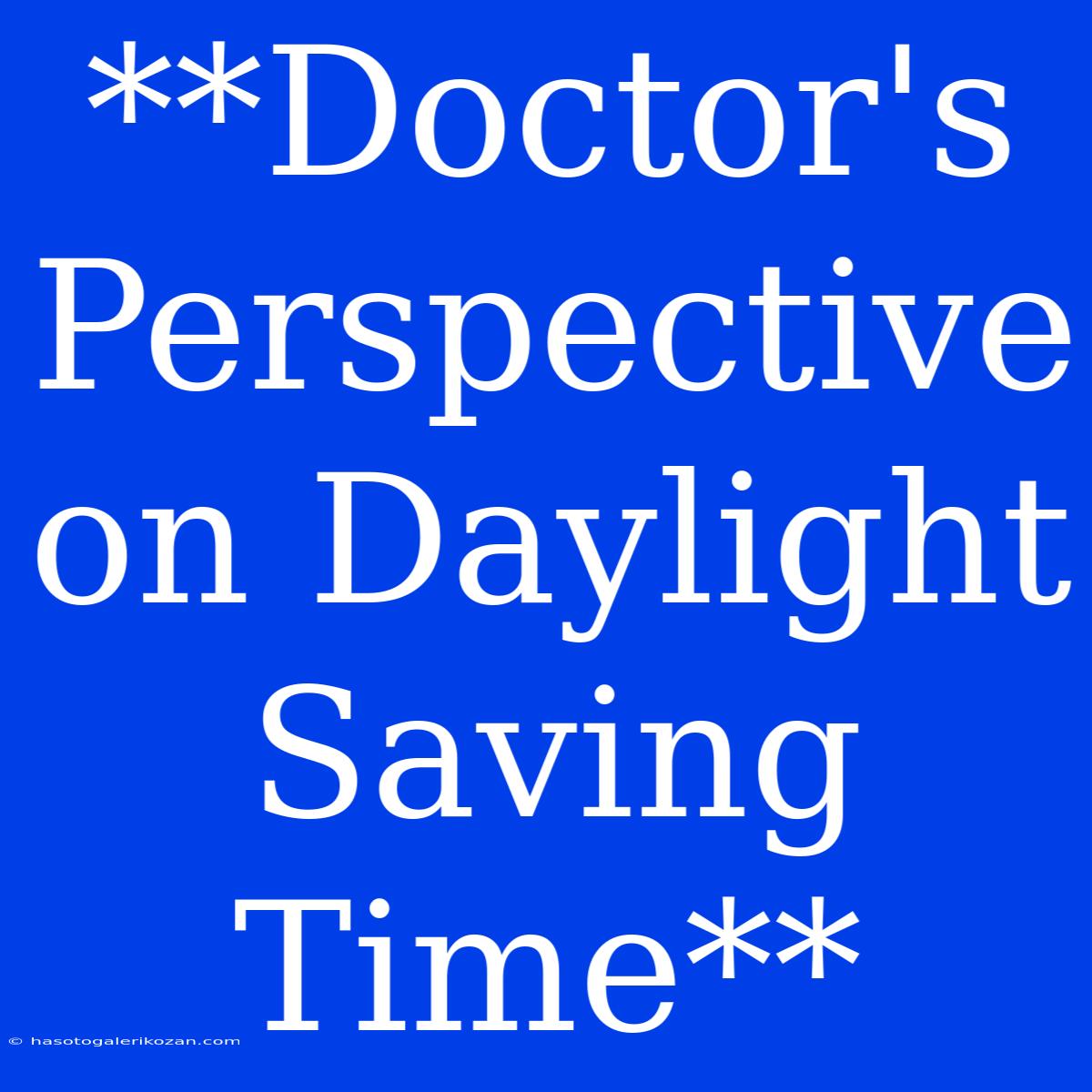Doctor's Perspective on Daylight Saving Time: More Than Just Changing the Clocks
Daylight Saving Time (DST) is a controversial topic, with proponents arguing for its economic benefits and detractors citing negative impacts on health and well-being. But what does a doctor think? As a medical professional, I see the effects of DST firsthand, and I'm here to share my perspective on its potential health consequences.
The Sleep-Wake Cycle and DST
Our bodies are governed by an internal clock, known as the circadian rhythm. This rhythm dictates our sleep-wake cycle, influencing everything from hormone production to body temperature. DST disrupts this delicate balance by shifting our clocks forward or backward, essentially forcing our bodies to adjust to a new sleep schedule.
Potential Health Impacts:
- Sleep Disturbances: The most immediate effect of DST is sleep disruption. The change in sleep patterns can lead to insomnia, fatigue, and difficulty falling asleep. This can be particularly problematic for individuals with pre-existing sleep disorders.
- Mood Changes: Chronic sleep deprivation can affect our mood, making us more likely to experience irritability, anxiety, and even depression.
- Increased Risk of Accidents: Sleep deprivation can impair our cognitive function, increasing the risk of accidents, especially while driving.
- Heart Health: Studies have shown a correlation between DST and an increased risk of heart attacks and strokes. The exact mechanism for this link is still being researched, but it's likely due to the stress on the cardiovascular system caused by sleep disruption.
- Other Health Issues: DST has also been linked to digestive issues, weakened immune system, and even a higher risk of certain cancers.
What Can We Do?
While DST may seem like a minor inconvenience, its impact on our health shouldn't be underestimated. Here are some tips to help mitigate the negative effects:
- Prepare for the Change: In the weeks leading up to DST, try to gradually adjust your sleep schedule by going to bed 15 minutes earlier each night.
- Prioritize Sleep: Make sleep a priority, even if it means getting extra rest during the day.
- Maintain a Consistent Sleep Schedule: Go to bed and wake up at the same time each day, even on weekends.
- Limit Caffeine and Alcohol Before Bed: These substances can interfere with sleep quality.
- Create a Relaxing Bedtime Routine: Wind down before bed with calming activities like reading or taking a warm bath.
The Debate Continues
While the evidence suggests potential health risks associated with DST, the debate on its necessity and implementation continues. It's important to be aware of the potential downsides and take steps to protect your health, especially during the transition periods. By understanding the impact of DST on our bodies, we can make informed decisions about how to best manage our sleep and overall well-being.
